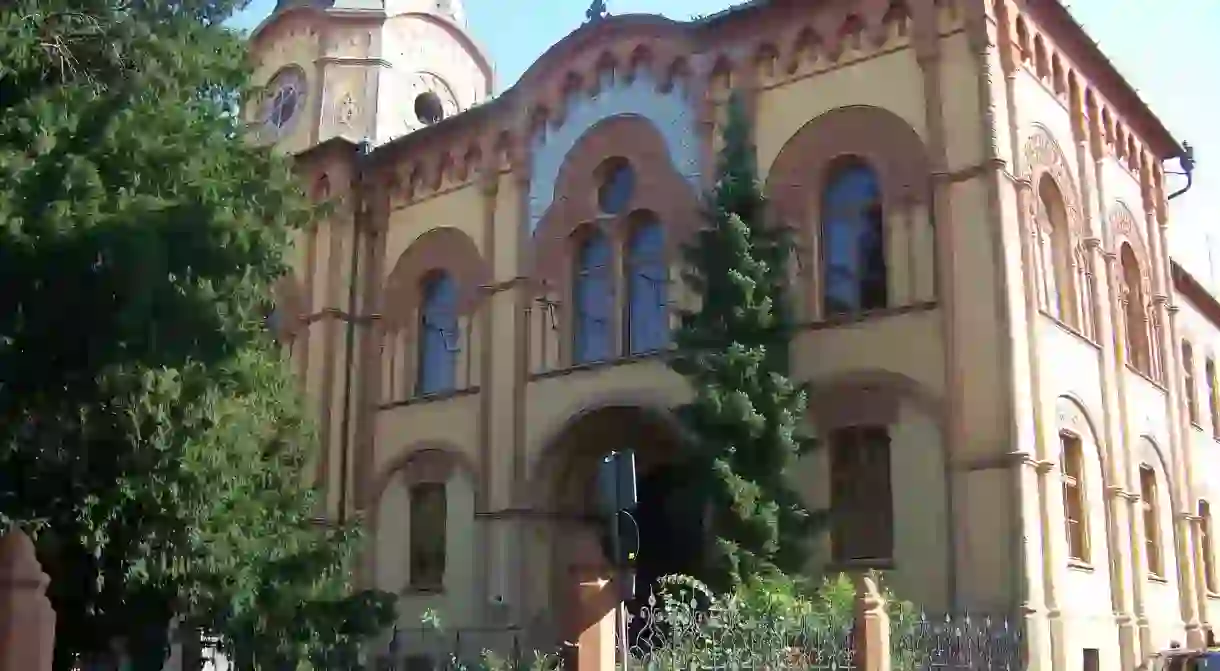The Most Beautiful Architecture in Sremski Karlovci, Serbia

Sremski Karlovci is one of the prettiest towns in Serbia, if not the prettiest. Just a short drive from Novi Sad, the historic town is home to some of the most remarkable buildings in the entire country, and absolutely demands a visit. This is the best of the best when it comes to architecture in Sremski Karlovci.
Patriarchate Court
Sremski Karlovci’s most impressive building is without doubt the Patriarchate Court. This late 19th century masterpiece may well be its most historic too, as it was once the seat of the Serbian Orthodox Church in the Habsburg Empire. The Ottoman takeover of Kosovo had made the existence of the Church down in Peć untenable, and Karlovci subsequently became a massively influential town in the minds and hearts of the Serbs.
The Court was designed by Vladimir Nikolić, and uses the Cyrillic ‘C’ as its main inspiration. Plenty of influence came from the palaces of Italy, adding another layer of class to this already impressive structure. It may no longer be the centre of Serbian spiritual life, but this remains a hugely important building in the nation.

Cathedral Church of St. Nicholas
Sticking with the Serbian Orthodox Church for the time being, the Church of St. Nicholas is one of the best examples of Serbian Baroque architecture in the entire country. The striking facade might be the most recognisable design in town. The interior is every bit as impressive, with frescoes covering the walls from floor to ceiling. Karlovci’s size means most of its best sights are on the same square, making it the prettiest plaza in Serbia.
City Hall
The 19th century was an incredible time in Sremski Karlovci, as almost all of the town’s notable buildings were constructed during the 1800s. The City Hall (Municipal Assembly) is another glorious achievement from that century stretch. Finished in 1811, this neoclassicist building played an important role in the evolution of Karlovci, and the iconic floral balcony saw many a great speech during the Serbian nation’s coming of age.

Sremski Karlovci Gymnasium
Not everything of note in Sremski Karlovci was built in the 19th century, although the oldest secondary school in Serbia had to rush to open in the late 18th. December was the month and 1792 was the year the Karlovci Gymnasium was established, the starting point from which Serbia began to re-educate its people. It is a delightful building, one that houses one of the nation’s most impressive libraries.

The Church of St. Peter and Paul
First mentioned in the final year of the 16th century, the Church of St. Peter and Paul is a delicate house of worship in Serbia’s most delicate town. The church itself is plenty pretty, but the entire scene is accentuated by the lone tree in its courtyard. The tree is a protected monument of the town, and adds a new layer of serenity to this blissful place.

Chapel of Peace
The Chapel of Peace. Sounds nice, right? This adorable little chapel on a hill just outside town is every bit as cute as you’d presume. There is history in this yellow building, too. It was here that the Christian Alliance and the Ottoman Empire agreed to end their fighting in 1699, which will answer your question as to where the name comes from.
This is a masterpiece of diplomatic architecture. The building has four entrances, ostensibly to allow all the members of the roundtable to enter at once. The special building was turned into a chapel in the centuries following, and is still in use today.














